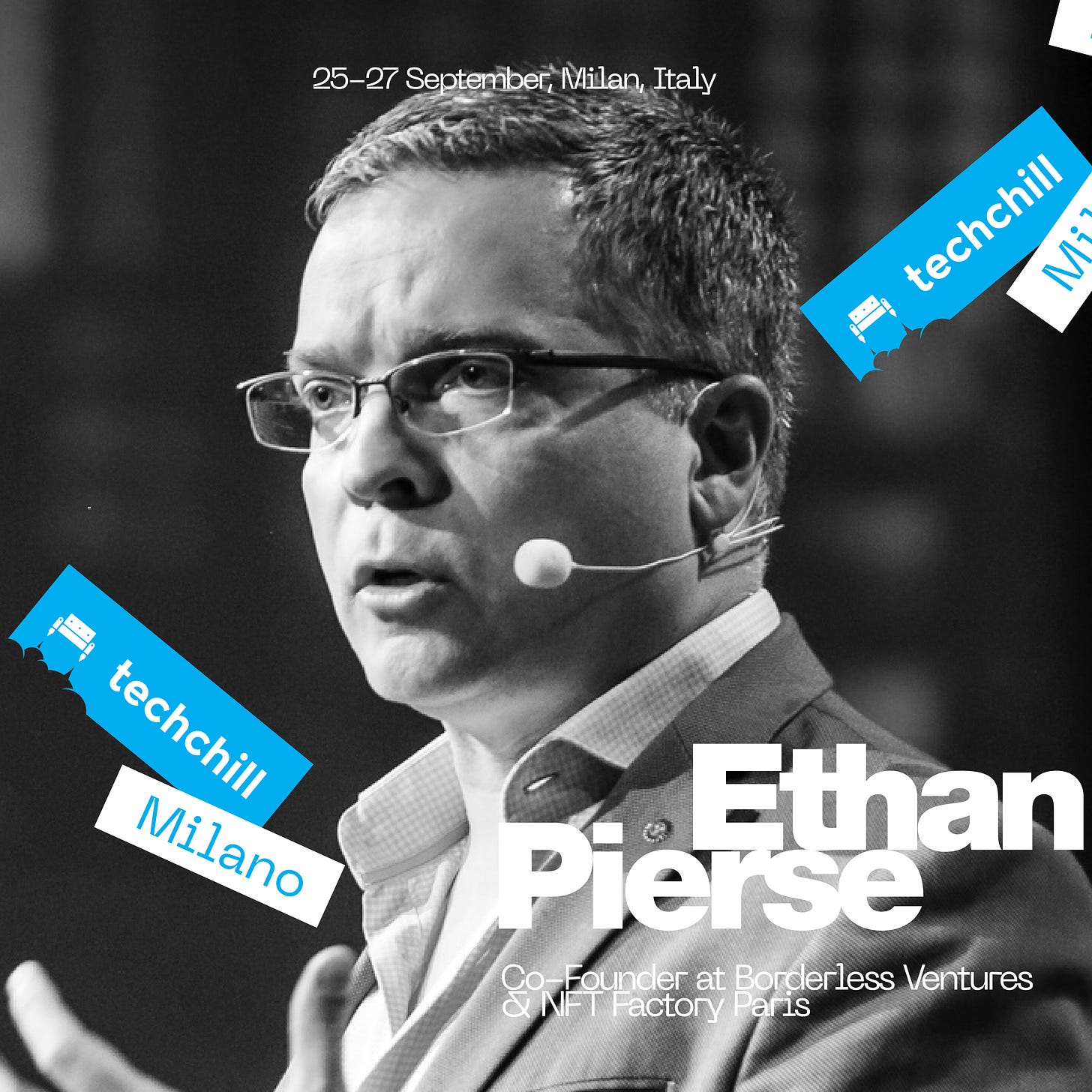TechChill Milano Web3 Keynote and Panel
Three times in Milan in as many weeks. What a privilege to visit this wonderful city and connect with so many inspiring people building Italy’s startup ecosystems. I have spoken several times at TechChill’s home conference in Riga, Latvia, and was excited to get to speak at their second edition of TechChill Milano.
As usual with a general tech audience, I love getting to share my passion and vision for the future of the Internet and Brand Marketing which is web3. In my web3 keynote, we covered:
– digital wallets as identity
– digital twins of physical goods / phygital
– digital collectibles
– rewards and loyalty programs
– events and ticketing
– in-game video game assets
– music industry engagement and monetization
– a more decentralized creator economy
I also had the pleasure of moderating a fantastic discussion on ESG requirements and responsibilities for startups with a rockstar panel “Balancing Profit and Purpose: The Importance of Sustainability and ESG Requirements in Business Operations”:
Egija Gailuma, Co-Founder of Tesla car-sharing startup OX Drive
Asetila Koestinger, Founder of GoodStartup School
Aristotelis Xenofontos, Partner at Seaya Venture Capital
In a packed 30 minutes, we covered how startups can address their Environmental, Social, and Governance Sustainability responsibilities. On the environmental side, which is what comes to mind first for most people when we say sustainability, we are referring to an organization’s ability to address its current needs while not negatively impacting future generations’ ability to meet their own…whether it is energy or water usage, carbon footprint, waste generation, and other factors. For social sustainability, we might be talking about labor practices, community engagement, or just the ability for an employee to identify with their company’s culture: gender equality, POC, LGBTQ, etc..
Startups generally fall outside of the requirements for regulatory obligations like the EU’s Corporate Sustainability Due Diligence Directive (CSDDD), Non-Financial Reporting Directive (NFRD), or Sustainable Finance Disclosure Regulation (SFDR) because their employee count or yearly revenue is less than the minimum. In the UK, you have the UK Disclosure Framework for Net Zero Transition Plans as well as the Streamlined Energy and Carbon Reporting (SECR) regulations.
However, employees and customers of those startups will still expect them to behave responsibly and sustainably, so startups should aim to be as compliant as possible with regulations and market expectations. It is also never too early to prepare for the happy day that either the employee count or the company’s turnover obliges them to comply with those obligations.
We also discussed the opportunities presented for entrepreneurs in using technology to address the 17 United Nations Sustainable Development Goals (SDGs)…sustainability as a business model or business function. On the investment side, more and more investors are preferring to focus on sustainable companies and business models, not only opening up new opportunities to raise capital but underlining the idea that startups addressing our ESG needs could very well be the most valuable companies ever created as they solve our environmental and societal problems.






